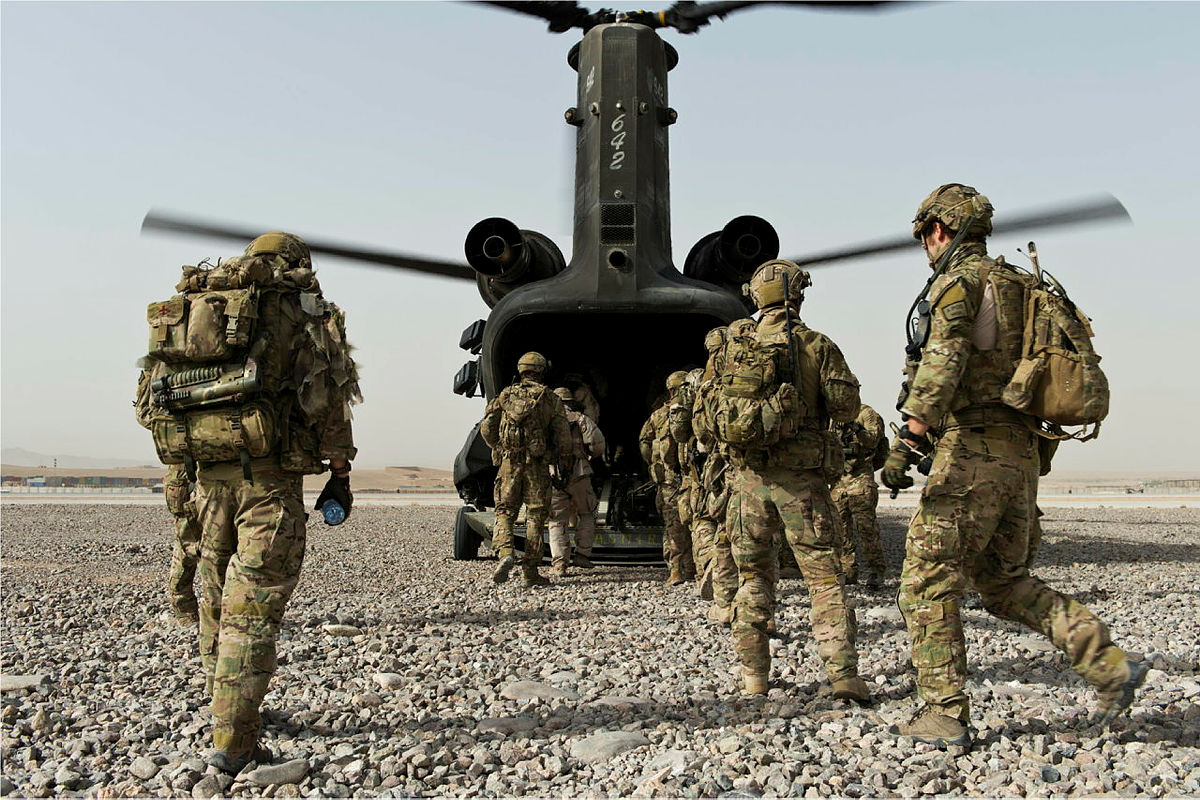Noise around Afghanistan inquiry risks distracting from need to prevent future war crimes

To our national detriment, much of the public discussion on war crimes alleged to have been committed by Australian soldiers in Afghanistan is focusing on secondary, peripheral or irrelevant issues.
Some public confusion has resulted from inaccurate media coverage.
Straw-man arguments have also been peddled by those with other agendas, including a wish to obscure the key fact that premeditated and systemic war crimes were committed, and that they were inexcusable.
Alleged perpetrators remain entitled to the presumption of innocence and a fair trial in a civil court before a jury of their peers. And they will get those things.
But whether anyone will eventually be convicted, or not, also remains a separate practical and moral issue to the broad fact that such shocking crimes did happen, and that major decisions need to be made about it.
Australia, and not just the Australian Defence Force, needs to ensure they never happen again.
Justice Paul Brereton’s independent, four-year inquiry has explored the extent of the war crimes, why they occurred and what reforms are now necessary. Conclusions and recommendations cover four categories of subsequent action. Each has twin objectives in differing proportions.
First are the referrals for criminal investigations by the Australian Federal Police (and now also a special investigator). These predominantly involve a focus on legal and moral accountability individually, but will also have collective deterrent value for the future.
Second are actions under administrative law, such as discharges and resignations from the ADF and the voluntary surrender or revocation of honours and awards. These involve a mix of individual accountability and collective culture-change measures to deter and prevent future war crimes.
Third are disciplinary-law actions against individuals under the Defence Force Discipline Act 1982 involving both accountability and deterrence. The more serious charges—say, for duty failure or negligence—involve trial by courts martial.
Fourth, there are structural and cultural reforms instituted under the statutory command authority held by the chief of the defence force under the Defence Act 1903. These involve both objectives but lean more towards deterring and preventing future war crimes.
Many people, however, appear to wrongly assume that only the criminal-law actions are being undertaken. That’s led to the unfounded belief that Brereton only drew conclusions and recommended action involving lower-ranked personnel.
Such misapprehensions are being exploited in various political quarters and among media controversialists, encouraged by those pushing unrelated bandwagons or promoting diversions from, or acting as apologists for, perpetrators.
As few critics seem to have read the Brereton report, or grasped its actual legal, military professionalism and national and international accountability contexts, four risks have arisen.
First is a loss of focus that this is a serious national problem, both practically and morally, and not just a matter for the defence force, the law or the government.
Second, many seem to forget that Brereton’s judgements and recommendations deal with measures that are necessary before criminal and disciplinary actions can be completed. That is particularly true of those concerning the prevention of systemic war crimes in future.
Third, as Brereton notes, those still in denial regarding war crimes do not belong in our defence force. Consequently, immediate and deep organisational and cultural change is required to reinforce or reintroduce military professionalism in the units concerned.
That must include active and symbolic steps to cure the sick unit cultures that enabled and concealed the alleged premeditated and systemic murders of prisoners. These are not matters that can be reasonably judged to have resulted from heat-of-battle incidents or battlefield accidents.
Some cases continue to involve campaigns to intimidate and discredit digger whistleblowers and peddle straw-man excuses for what occurred.
Finally, passions need to cool so objectivity can be applied to a national discussion of the ADF reforms that are needed.
ADF chief Angus Campbell was a new chief of army when he asked the statutorily independent inspector-general of the ADF to institute an inquiry into suspected war crimes. There has been no ‘high-level cover-up’. The reason the inquiry took so long is due to the size and complexity of the problem and its numerous lines of investigation.
Defence Minister Linda Reynolds has rightly backed Campbell and not interfered with his professional duties and command prerogatives as set out in the Defence Act. Doing so, as some have demanded, would be deeply improper.
The minister has also not hesitated to consider and explain the war crimes and their consequences accurately.
Those in the parliamentary opposition responsible for defence and foreign policy issues have also rightly backed Campbell. Grandstanding has been mostly confined to the fringes in politics and in the community generally.
Despite inflamed passions, several issues still need to be resolved.
As Brereton notes, various medals for conspicuous or distinguished service cannot ‘in good conscience be retained’ by individuals bearing a moral responsibility for command and other failures. Where his hint that they should be surrendered voluntarily is ignored, some revocations will be necessary.
A meritorious unit citation, however, is neither an individual award nor a ‘medal’. It’s a badge worn, on the opposite breast to a medal, to signify acclaim that a unit won collectively.
Revoking such a citation if the collective actions concerned are subsequently found to be unmeritorious or worse is not a legal, protocol or personal matter. It helps signify Australia’s moral responsibility, the integrity of national repentance and our will to prevent future war crimes.
As in any teamwork-based organisation, when all share the acclaim of such a badge, all share some responsibility when its award is no longer justified. Especially in circumstances such as systemic war crimes and their concealment.
Perhaps the citation could be reissued to the subunits of uninvolved parent units, especially as it probably should not have been awarded to a temporary formation—the special operations task group that served in Afghanistan—in the first place.